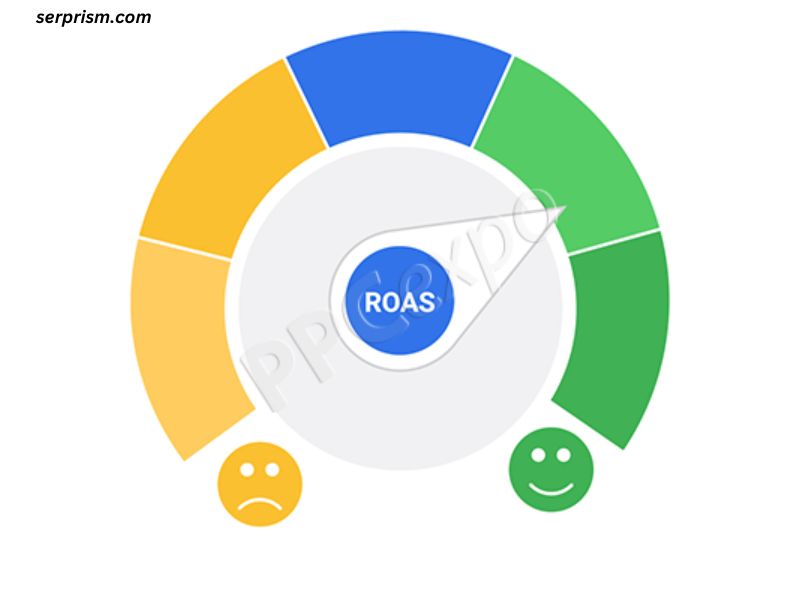
When it comes to digital marketing in the real estate industry, one of the most important metrics to track is your Pay-Per-Click (PPC) Return on Ad Spend (ROAS). This metric helps measure the efficiency and effectiveness of your PPC campaigns, which are crucial for generating leads and sales. In the highly competitive real estate market, understanding the average PPC ROAS can help you optimize your ad campaigns and maximize your return on investment (ROI). In this comprehensive guide, we’ll dive deep into what PPC ROAS is, how it impacts your real estate business, and strategies to improve your ROAS for better results.
What is PPC ROAS?
PPC ROAS (Return on Ad Spend) is a metric that measures how much revenue you earn for every dollar spent on your PPC advertising campaigns. In simple terms, it helps you determine whether your ad campaigns are profitable and how effectively your budget is being allocated to drive conversions, such as property inquiries, leads, or sales.
To calculate PPC ROAS, you use the following formula:
PPC ROAS = Revenue from Ads / Cost of Ads
For example, if you spend $1,000 on PPC ads and generate $4,000 in revenue from those ads, your ROAS would be 4:1, meaning you earned $4 for every $1 spent.
Why is PPC ROAS Important in Real Estate?
PPC campaigns are a core component of real estate marketing. Whether you’re targeting homebuyers, sellers, or renters, PPC ads allow you to reach a highly targeted audience, and optimizing your ROAS ensures that you get the most value out of your marketing budget.
Here are some key reasons why PPC ROAS is so important for real estate professionals:
- Maximizing Profitability: By understanding your PPC ROAS, you can determine whether your campaigns are cost-effective and producing a positive return. This ensures that you are not wasting money on poorly performing ads.
- Optimizing Ad Spend: Real estate advertising budgets can be quite large, especially in competitive markets. Tracking your ROAS helps you allocate funds to the most effective campaigns and reduce spend on underperforming ads.
- Increasing Lead Generation: With the right PPC campaigns, real estate professionals can generate high-quality leads that are more likely to convert. Improving your PPC ROAS helps you identify which ads and keywords drive the best results.
- Understanding Market Trends: Analyzing PPC ROAS also gives insight into the current trends in the real estate market. By adjusting your ad targeting based on the performance of specific keywords, locations, and demographics, you can stay ahead of market shifts.
- Improving Ad Quality: Consistently tracking PPC ROAS helps identify which ads resonate best with your target audience. This allows you to improve your ad copy, landing pages, and overall messaging to drive better results.
Average PPC ROAS in Real Estate: What You Need to Know
The average PPC ROAS in real estate can vary significantly depending on a number of factors, such as the type of real estate business, geographic location, target audience, and the keywords being targeted. However, there are some general industry benchmarks that can give you a good idea of where you should aim for in terms of PPC performance.
General ROAS Benchmarks for Real Estate
In the real estate sector, a good PPC ROAS typically ranges between 4:1 and 6:1, meaning you earn $4 to $6 in revenue for every $1 spent on PPC advertising. However, some real estate companies may achieve higher ROAS, especially if they have a highly targeted strategy and effective ad creatives.
- High-Performing Campaigns: Some well-optimized campaigns in the real estate industry can achieve a ROAS of 8:1 or higher. These campaigns typically have a very specific target audience, highly relevant keywords, and optimized landing pages that drive conversions.
- Moderate-Performing Campaigns: Real estate professionals who are still refining their PPC campaigns may see ROAS in the 3:1 to 4:1 range, which is still considered profitable but indicates room for improvement.
- Underperforming Campaigns: A ROAS lower than 2:1 generally indicates that a PPC campaign is not performing well. In this case, you may need to reevaluate your keyword targeting, ad copy, or landing page experience to boost performance.
Factors That Affect PPC ROAS in Real Estate
To improve your PPC ROAS, it’s important to understand the key factors that influence performance. These include:
- Keyword Selection: Choosing the right keywords is essential for generating qualified leads in real estate. Long-tail keywords (e.g., “3-bedroom homes for sale in San Francisco”) tend to have a lower cost per click (CPC) and higher conversion rates compared to broad, generic keywords like “homes for sale.” Focusing on hyper-targeted keywords that match the search intent of potential buyers or sellers can lead to higher ROAS.
- Geographic Targeting: Real estate is inherently location-based, and targeting the right geographic areas is critical to improving your ROAS. Running ads in highly competitive markets (e.g., large metropolitan areas) might require higher bids, but with proper targeting, these ads can still produce good results.
- Ad Quality: High-quality ads that are relevant, compelling, and optimized for the target audience tend to perform better. Include strong calls to action (CTAs), attractive headlines, and relevant offers to encourage more clicks and conversions.
- Landing Page Optimization: When users click on your ad, they should be directed to a relevant and high-converting landing page. A well-optimized landing page can drastically improve your conversion rate, which in turn increases your ROAS. Make sure your landing pages are fast, mobile-friendly, and have clear CTAs.
- Ad Extensions: Using ad extensions such as site links, call extensions, and location extensions can enhance the performance of your PPC ads. These additional features improve visibility and provide more information to users, which can lead to higher click-through rates (CTR) and conversions.
- Budget Allocation: Properly allocating your budget based on performance is another key factor. Reallocate funds to the campaigns and ad groups that are performing the best, and pause or reduce budget for those that are underperforming.
- Bid Strategies: Implementing automated bid strategies, such as Target ROAS or Maximize Conversions, can help you optimize your campaigns for better ROAS. These strategies use machine learning to adjust your bids based on the likelihood of conversion.
Strategies to Improve PPC ROAS in Real Estate
Now that you have a better understanding of the factors influencing PPC ROAS in real estate, here are some actionable strategies you can implement to improve your results:
1. Use Negative Keywords
Negative keywords help prevent your ads from showing up for irrelevant search queries, reducing wasted ad spend and improving the relevance of your campaigns. For example, if you’re a luxury real estate agent, you might want to exclude terms like “cheap homes” or “affordable apartments” from triggering your ads.
2. Focus on Conversion Tracking
Effective conversion tracking is essential to understanding your PPC ROAS. Set up conversion tracking in Google Ads or other PPC platforms to track the specific actions you want users to take, such as submitting a lead form, calling your office, or downloading a property brochure. This allows you to optimize for the highest-converting actions and improve your overall ROAS.
3. Use Remarketing Campaigns
Remarketing allows you to target users who have previously interacted with your website or ads. These users are already familiar with your brand and are more likely to convert. Running remarketing ads can help boost your PPC ROAS by re-engaging potential clients and bringing them back into the sales funnel.
4. Test Different Ad Creatives
A/B testing is a critical element of improving PPC ROAS. Test different ad copy, headlines, CTAs, and images to see what resonates best with your audience. Small changes, such as adjusting your ad copy to focus on unique selling points or offering limited-time promotions, can lead to significant improvements in ROAS.
5. Optimize for Mobile Devices
In today’s mobile-first world, optimizing your PPC campaigns for mobile devices is crucial. Ensure that your ads and landing pages are mobile-friendly, as a large percentage of real estate searches happen on smartphones and tablets. A smooth mobile experience can lead to higher click-through and conversion rates, improving your overall ROAS.
6. Monitor and Adjust Campaigns Regularly
PPC campaigns require constant monitoring and optimization. Keep an eye on your performance metrics, such as CTR, conversion rate, and CPC, and make adjustments as necessary. Regularly updating your ads, testing new keywords, and adjusting bids based on performance can significantly improve your ROAS over time.
Conclusion
Understanding the average PPC ROAS in real estate and optimizing your campaigns accordingly is essential for achieving success in the competitive real estate market. By focusing on the right keywords, improving ad quality, targeting the right audience, and continuously testing and refining your strategies, you can significantly increase your ROAS and generate higher returns on your advertising spend.
Remember, achieving a high PPC ROAS is not a one-time effort but an ongoing process of optimization and testing. By staying on top of your campaigns and using data-driven insights to make informed decisions, you can maximize your PPC performance and ultimately grow your real estate business.




